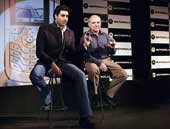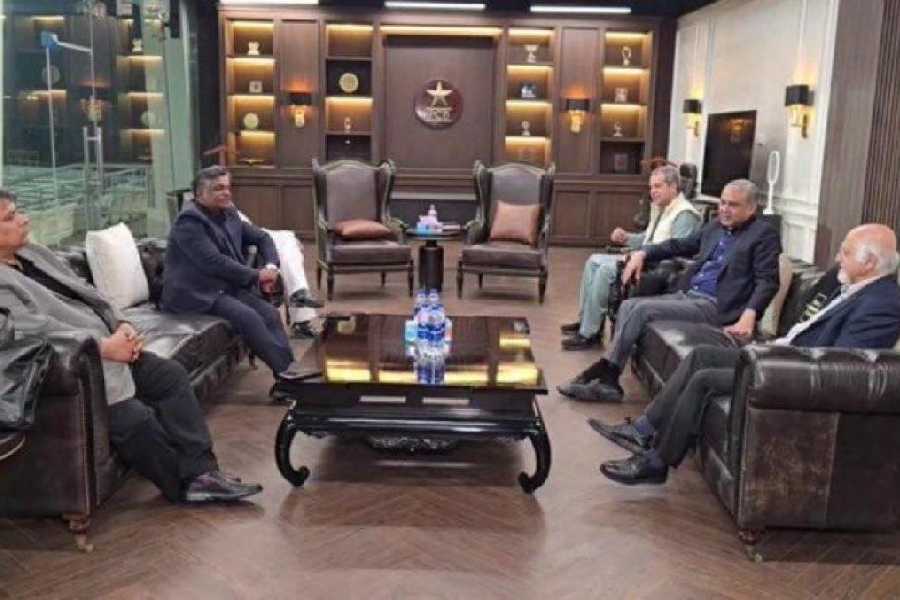 |
It is time to turn the question around. In marketing, the usual debate is why do brands need stars in their advertising. This time, the flip side of the same query has become pertinent: why does a star lend his presence to a brand? There is a very good reason to raise this question. Yes, you guessed it right. The issue that really needs to be understood is why Abhishek Bachchan agreed to do the self-deprecating Motoslvr ads (picture right at a promotional for the phone).
But more about that later. First it would be useful to understand what prompts a star to accept an advertising assignment. The simple answer to this will be to make some quick money. If you are wondering why our super rich stars would need such extra money, don’t waste your time.
Firstly, no one ever has enough money and secondly the sum of money involved in the 30-second advertising films is fairly large. One of the smaller deals that Amitabh Bachchan signed recently allegedly involved a fee of Rs 6 crore, not a mean sum even for a superstar.
Indeed, return on investment per day of shooting is significantly higher in advertising films compared to feature films. It is also true that stars do not do any and every advertising film that comes their way, whatever be the financial rewards.
Weighed against the money are very serious considerations about their primary profession. Usually the first screening is the product category. Some fight shy of alcohol and tobacco. Some would not be seen dead in an undergarment ad and so on.
Past this first post, stars then examine the script. Perhaps justifiably, they are concerned about the impact the advertising will have on their star value and their star image. So they tend to prefer scripts with ample scope either for histrionics or for expanding the halo around their head. There is always a give and take between money and image.
It is in the light of this trade-off that Abhishek Bachchan’s appearance in the Motoslvr ads becomes intriguing. We have no idea how much money was paid and whether the offer was irresistible on that count. What seems reasonably clear is that the Bachchan Junior has broken all the rules of the image game.
A Hindi film star is always on the winning side. He is always the nice guy, the brave guy, the honest guy. Or of late, at least a guy who atones for his past sins and becomes a martyr. Abhishek is already a star. More crucially, post Bunty Aur Babli and Sarkar, he is a superstar in the making.
More than anyone else he needs to toe the image protection laws of the industry. Yet, Abhishek Bachchan has done exactly the opposite in these two ads for Motorola. In one he plays the obnoxious, full-of-himself hero. In the other, he is an unabashed womaniser confident of picking up a girl in a bar. Both are characters that people can dislike easily. More importantly, both are eventual losers. At this juncture, let us remind ourselves we are not talking about hypothetical characters of an advertising film. In both, Abhishek plays Abhishek.
Someone said that a hero is someone you admire without an apology. On the face of it, Bachchan Junior seems to challenge this proposition. But if you ponder for a while, another possibility may strike you.
Abhishek Bachchan could well be adopting a Brechtian strategy. He wants to remind his fans that he and the characters he plays are always different, even if they have the same name and profession. One should not be confused with the other. Indeed, he too perhaps wants to be admired without an apology, but only for his screen persona. He wishes to keep Abhishek the flesh and blood person private. In an image-crazy industry, this brand has set its own rules for creating the reflection.










